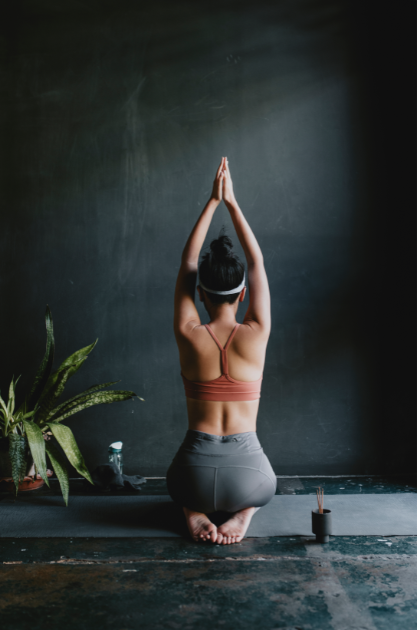Wellness expert explains simple acts of self-care anyone can do without spending a dollar
Expensive facials and massages are great, but they're not self-care.
Self-care is not what we've be taught one therapist explains
Let's talk about it: Self-care. It's something that has been co-opted by wellness influencers and gurus that somehow (and all-too-often) involves spending money on something luxurious. Self-care is often branded as things like pedicures, vacations, and hour-long massages at the spa, but according to Dr. Raquel Martin, we've been doing self-care all wrong.
In July 2024, Martin—a licensed psychologist—uploaded a video to her Instagram explaining what self-care is truly supposed to be. Spoiler alert? It's not meant to be indulgent. At least, indulgence shouldn't be an all-the-time expectation of self-care. Martin acknowledges that the wellness industry has monetized and conflated self-care with self-indulgence, and she explains that having self-care propped up as something that is indulgent isolates people who cannot afford those types of activities.
The psychological toll for conflating self-care with self-indulgence can get dangerously high. In the 2020 Psychology Today article, "Why Does Self-Care Sometimes Feel So Hard?", author and licensed psychologist Alicia H. Clark Psy.D notes that "indulgence stops being self-care when you feel guilty or unhappy with yourself, and this threshold is different for everyone." She goes on to say that "one person's self-caring indulgence can be another's gateway to self-harm, depending on your relationship with the activity, your capacity for moderation, and the reality of its consequences." This makes wellness influencers who tout a heavily indulgent, "treat yo' self" ideology of self-care all the more dangerous. Self-care is not one size fits all, and for those who struggle with self-discipline and moderation, the mindset can do more harm than good.

So, what is self-care actually? How is it achieved? And is it always supposed to feel good? Dr. Martin goes on to share how she practices self-care, and what she lays out was surprising her viewers. According to Martin, "Self-care is not responding to every call and, if I do not have the bandwidth to have the conversation, stating that I don't have the bandwidth to have the conversation." She also notes that she says "No" to things she doesn't want to do, sets a financial budget, and does not drink caffeine after 4 p.m.
These things might seem a little boring when compared to indulgent self-care, but one thing is clear: these self-care practices are actually good for Martin's body, health, and overall wellness.
Much of what Martin listed are things a lot of people don't consider as self-care, but in actuality, self-care is defined simply by taking care of one's self. This means practicing self-care is getting in a few minutes of exercise a day, drinking more water, or spending time with friends. You don't have to spend money to care for yourself.

Commenters were shocked and thankful for Martin's clarification on what self-care is actually supposed to be:
"Love this list!! As a massage therapist, I have to call out the misconception that massage is indulgent. I'm always telling my patients that self care is more than a bath. I will be sharing this list with my patients. I'm also trying to make massage more accessible," one person writes.
"Thank you for this post. I’m internalizing your advice to see how I can apply. You resonated with my thoughts on so many levels. However, you also provided some clarity and food for thought/fuel for action," another says.
"I really appreciate what you said about pallet cleansers! Sometimes I get frustrated with myself because I'm not able to read and consume and learn about all the issues different people are facing. It's really important to me to learn about those things, not just for awareness, but also so I can do something about it. But self care is so important throughout that, like leaving my phone in the other room, or watching my comfort shows like you said. I often read kids books or TV because of how horrible the world is right now, and I need something extremely wholesome to balance it out. Also, workshop? I'm not sure what that means but I like learning from you. Thanks," another viewer shares.
So, maybe it's time to collectively ditch those indulgent expectations of self-care and really take a look at ways we can actually care for ourselves instead.
This article originally appeared last year. It has been updated.
